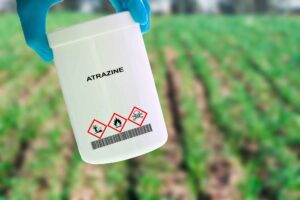Car accidents can occur at any time, in any parish in Louisiana. However, they’re more common on interstates, and they’re especially likely to occur when motorists engage in negligent behavior.
This issue has become alarmingly evident on Louisiana’s highways, where, on average, three people die every day. Many of these fatalities are entirely preventable. But until drivers behave more responsibly, it’s important to understand when and where local routes are riskiest.

Interstate 10, in particular, must be navigated with caution, as it’s the site of far too many Louisiana car crashes. Here’s why I-10 is the worst road in Louisiana, and what you can do to stay safe on it.
Interstate 10: The Worst Road in Louisiana?
As the nation’s southernmost cross-country highway within the American Interstate Highway System, Interstate 10 is a major thoroughfare for Louisiana, her neighboring states, and the South in general. Extending nearly 2,500 miles, I-10 is the fourth-longest interstate in the U.S. It starts at the Pacific Coast Highway and continues to Jacksonville. Along the way, it links major cities like Los Angeles, Phoenix, Houston, Baton Rouge, and New Orleans.
In Louisiana, I-10 plays a crucial role in commerce, tourism, and everyday commuting. Unfortunately, traffic can be considerable along multiple stretches of this route. Baton Rouge is notorious for its backups, which may be caused by the interstate’s proximity to dense residential areas.
Dangers on Interstate 10: What the Data Says
Fatal car accidents are more likely to happen here than on any other road in the states. While interstates accounted for a significant share of total traffic fatalities in 2021 (with 122 deaths occurring on various Louisiana interstates), I-10 was the greatest source of danger. In 2021, 54 traffic deaths occurred on I-10 alone, far surpassing the fatality rates for other interstates. It’s a consistent pattern. In 2018, for example, 57 fatal crashes occurred along I-10.
Why Are Louisiana Highway Fatalities on the Rise?
The hazards of Interstate 10 are unfortunately familiar to Louisiana residents, who have been complaining about this route for decades. With that said, it’s more people are dying on Louisiana’s roads than ever before. In 2021, the Department of Transportation and Development counted a total of 997 deaths in motor vehicle accidents in Louisiana, breaking the record of 993 deaths set in 2007. In 2020, 828 people died in highway crashes.
While announcing the horrific fatality numbers from 2021, DOTD Secretary Shawn Wilson explained, “It is extremely disheartening to see our highway fatality statistics soaring in the wrong direction…Having nearly a thousand fatalities on the road in a year is inexcusable, unacceptable, and frightening, especially when the vast majority of them are preventable.”
While residents and law enforcement officials blame the rising traffic fatality rate on numerous factors, the following issues warrant attention:
Pandemic Driving
Experts from DOTD theorize that the pandemic may have played a role in the sudden increase in fatalities. During the lockdowns and height of remote work in 2020, there was far less traffic in general, and, therefore, fewer accidents. During this time, drivers became accustomed to reckless behaviors like speeding or driving while texting. DOTD Secretary Wilson refers to this issue as an “increased comfort of drivers driving distracted.”
In addition to distraction, many drivers admit increased frustration and rage. Whether this stems from pandemic-related stress or other issues, these difficult emotions have given way to aggressive driving.
This problem is by no means limited to I-10 or even Louisiana. Detailed data on pandemic-induced road rage is tough to come by right now, but anecdotal evidence suggests it’s on the rise across the nation. University of Wisconsin-Green Bay psychology professor Ryan Martin tells the Los Angeles Times, “We are just not being very kind to each other right now, and it’s influencing how we behave on the road.” He adds that, “driving is a perfectly designed situation to cause anger…it’s high stress and anxiety-provoking.”
Cell Phones
While many behind-the-wheel behaviors distract motorists, cell phones are the greatest possible distraction. Unfortunately, while Louisiana motorists are well aware of the dangers that texting presents, they continue to use their phones while driving.
Louisiana currently bans all texting and mobile-oriented social media posting while driving. According to the Louisiana Traffic Records Data Report for 2020, cell phone distractions were involved in 745 car crashes that resulted in injury. Higher speeds tend to exacerbate the hazards of cell phone use while driving, making I-10 — where many drivers exceed the already high posted limits — especially dangerous.
Drunk Driving
As of 2020, over forty percent of the Louisiana motor vehicle accidents involved alcohol. Louisiana State University’s Center for Analytics & Research in Transportation Safety shows that 13,646 DWI cases occurred in 2019. According to this analysis, drunk driving arrests are most common on Saturdays, especially in March and August. In the most severe cases, drivers have had blood alcohol concentrations (BACs) up to three times the state limit. While drunk driving is a criminal matter, impaired motorists can also be held accountable via personal injury lawsuits.
Seatbelts
Many car crash fatalities could have been minor injuries if drivers and passengers had worn their seatbelts. According to the Louisiana Traffic Records Data Report, 59 percent of vehicle occupants who died in crashes in 2020 were not using seatbelts. While 88 percent of Louisiana adults claim to always use their seatbelts, many choose to not protect themselves and pay the price.
Inclement Weather
Not all Louisiana car accidents stem from negligent driving. Inclement weather can also increase the likelihood of crashes. I-10 can be particularly problematic during hurricane season, when heavy rain, high winds, and downed trees may cause even the most attentive and responsible drivers to crash. The interstate was notorious during Hurricane Katrina when its Twin Bridges collapsed. More recently, it was closed due to Hurricane Ida, which damages electric lines and produced many other hazards.
The New Orleans Office of Homeland Security & Emergency Preparedness has made it abundantly clear that it’s “worse to be stuck on the road than sheltering at home during a storm.” At times, those who are desperate to evacuate don’t leave fast enough to avoid weather-related road hazards.
How Can Louisiana Drivers Address Road-Based Dangers?
The traffic fatality statistics from 2021 may be alarming, but previous data shows that Louisiana has dramatically reduced both accidents and deaths in the past. This time, it will take, as Louisiana State Police Commander Col. Lamar Davis explains, a great deal of cooperation between drivers and law enforcement officials. He intends to “raise awareness through ongoing enforcement of dangerous driving behavior and community education and outreach.”
Meanwhile, Davis believes that drivers and passengers can do their part by “remain[ing] properly restrained, avoid[ing] all distractions behind the wheel and never [driving] impaired.”
Individual efforts to reduce risk may also involve planning alternate routes — especially during rush hour, inclement weather, or holidays that are associated with drunk driving. Numerous alternatives to I-10 are available, although your willingness to use them will depend on where you need to go and how far out of the way you’re willing to travel.
Options worth considering include:
- US 190 between Beaumont and Baton Rouge. This is a two-lane road at times but generally is better maintained and has less traffic than I-10.
- US 90 near Slidell may be preferable during rush hour. Keep in mind, however, that as with I-10, significant sections of this route are considered among the most dangerous roads in Louisiana.
- I-12, which was actually intended as an alternative to I-10 when it was originally constructed. Located entirely within the state of Louisiana, I-12 runs adjacent to Lake Pontchartrain’s north shore, providing a great bypass for New Orleans traffic and a direct route between Baton Rouge and Slidell.
At the state level, campaigns addressing cell phone use, drunk driving, and other forms of negligence should also make a difference. For example, the Louisiana Highway Safety Commission addresses impaired driving via strategies such as saturation patrols and sobriety checkpoints. Saturation patrols involve increased monitoring for behaviors associated with drunk driving, such as speeding or following other vehicles too closely.
Unfortunately, until individual drivers limit negligent behaviors such as drunk driving or using cell phones behind the wheel, I-10 and other major routes will remain dangerous. While official stats are not yet available for early 2022, several terrifying accidents have already made headlines, like when a semi-truck car hauler crashed near the state line in January. This accident set vehicles aflame and resulted in road closures lasting over nine hours.
Working With a Louisiana Car Accident Lawyer
Negligent driving takes many forms and can occur on any highway in Louisiana — and it’s always unacceptable.
Victims of vehicular negligence may be eligible for compensation. This can be obtained under the guidance of a Louisiana car accident lawyer. The right attorney will provide a targeted approach that takes the realities of local traffic concerns into account.
Don’t let negligence on I-10 or any other Louisiana routes stand in the way of justice. Get in touch with an attorney as soon as possible.









